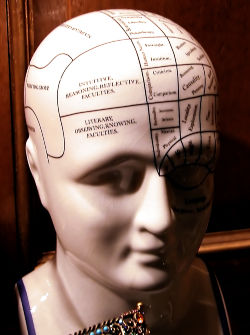Maximize Your Emotional Intelligence - EQ

According to Wikipedia, emotional intelligence is “the capability of individuals to recognize their own emotions and those of others, discern between different feelings and label them appropriately, use emotional information to guide thinking and behavior, and manage and/or adjust emotions to adapt to environments or achieve one's goals.”
You probably know someone that is highly intelligent from an intellectual standpoint but struggles with life. This is often a person with low emotional intelligence.
Just because you’re smart doesn’t mean you can make you way through the world successfully.
Those with high levels of emotional intelligence also have control over their thoughts and emotions. They both go hand-in-hand.
This makes it obvious why emotionally intelligent people are usually quite successful. They get along well with others and have mastery over themselves.
By boosting the right components of emotional intelligence, you can gain mastery over your thoughts and emotions.
Consider these topics in this online free self help guide as a way to learn more about yourself and your options for enhancing your mastery over your thoughts and emotions.
What High Emotional Intelligence (EQ) Can Do For You
You might think that emotional intelligence is fine for those in the arts and humanities, but emotional intelligence is necessary for success in all fields.
Emotional intelligence provides many benefits, such as:
1.
Increases your social effectiveness. When you understand your emotions
and the emotions of others, you can connect and communicate more effectively.
It can be a great advantage in personal relationships.
2.
Enhances your ability to lead others. When you understand motivation,
emotional state management, and can empathize with others, you become a more
effective leader.
3.
It boosts the likelihood of success. When you can control your thoughts,
emotions, and behaviors, you can do anything.
4.
It reduces bad habits and self-destructive
behaviors. Whether it’s
overeating, using drugs or alcohol, or wasting a day watching TV, emotional
intelligence makes it easier to avoid these behaviors.
5. You develop mastery over yourself. This is the primary focus of this online self help guide.
For some people, this is the whole point of living - to learn how to master yourself.
How many times do you know the best course of action, but you do something else instead? Gaining emotional intelligence can be the answer.
Emotional intelligence provides a lot of advantages. It’s easy to pick out those who are high in emotional intelligence.
It’s also easy to pick out those who are lacking in this important characteristic.
Emotional intelligence might not be the most exciting thing to develop. But, it might be the most important.
Even if you didn't do well in school, you can still be incredibly successful if you possess a high degree of emotional intelligence.
“Many of the confusions, conflicts, and disarrays that are
rampant in today’s organizations, communities, and nations could have been
avoided if leaders have solid self-awareness...”
ASSEGID HABTEWOLD
The 5 Components of Emotional Intelligence

Author Daniel Goleman is largely given credit for the idea of emotional intelligence and the description of the five primary components.
It's rare for someone to rate highly in all five without training and effort.
Consider these five components:
1. Self-awareness.
This is possibly the most important component of emotional intelligence.
Having self-awareness means that you have a
clear and accurate opinion of yourself. You also have a good handle on how others perceive you.
If you have a high level of self-awareness, you’re able to notice your emotions and think about them rationally in the moment.
If you’re lacking in
self-awareness, your emotions take over. You’re only able to recognize your
emotional state afterwards.
You’re
able to learn from your emotional experiences. You don’t have to repeat the
past.
You’re aware of your strengths and
weaknesses.
2. Self-regulation.
It’s great to be able to notice your emotions in the moment, but can you make a wise decision about how to proceed from that point?
Are you able to redirect your emotions into a healthy positive direction?
●
Can
you control your impulses?
● Are you able to take responsibility
for your actions?
● Do you respond in a reasonable manner
when others are acting unreasonable?
● Can you take a moment before you act
or speak and make a mature, intelligent choice?
● Do you know how to manage your
negative moods and thought patterns?
● Are you open to change and new ideas?
3. Motivation.
Do you have motivation that extends beyond money and
acquiring possessions? Are you able to motivate yourself internally or do you
require external motivation?
● Are you able to set goals and follow
through to completion? Can you persist when things aren’t going your way?
● Can you take the initiative to do
something, or are you only motivated by discomfort, such as deadlines, the
threat of losing your job, or other pain?
4. Empathy.
Are you able to understand the emotions of others?
Understanding yourself is the first step to understanding others. People are
very similar in their basic emotional makeup.
●
Do
you take an interest in the lives of others? Are you able to help someone cope
with emotional challenges they might be facing?
● Do you know how to comfort someone
else?
5. Social skills.
The range of social skills needed can be vast, but
these are things you’ve been learning since you were just a baby.
●
Can
you accurately interpret facial expressions?
●
Can
you anticipate the likely emotional reactions from others for the given
situation?
●
Can
you communicate effectively? Are you a good listener?
●
Are
you able to influence others?
● Can you create and sustain relationships?
How well do you rate in each area? You probably found one or more areas that could use a little work. That's okay.
Few people rate highly in all of these areas. We’re going to ignore empathy and social skills for our purposes.
The other three components are more pertinent for mastering your thoughts and emotions.
Awareness

Emotions are part of the human experience.
They serve a valuable purpose.
For example, negative emotions can help to keep you alive.
Positive emotions can encourage you to repeat positive behaviors.
However, the process isn’t full-proof. Your emotions can also harm you if you give in to them.
You might feel highly driven to eat a candy bar, though you shouldn’t.
You might feel an overwhelming urge to tell your boss exactly what you think, only to find yourself unemployed.
Our emotions aren’t always accurate guides for making decisions or choosing behaviors.
Getting a handle on your emotions is critical! But the first step is to become self-aware. Most people just react with their emotions.
It’s imperative to be able to analyze and understand them. In the process, you begin to understand yourself.
When you understand your own emotions and tendencies, you gain a better understanding of others, too.
“Engaging in meditative self-reflection and gaining increased
control of inner experiences provides a person with a sense
of control over fear and trembling and the chaos of life.”
Kilroy J. Oldster
Know Your Values
You can’t evaluate your emotional responses fully if you’re not aware of your values. It’s hard to know if your responses are best for you if you don’t know what’s important to you.
Your values signify what you stand for. They are part of what makes you unique.
Living your values allows you to reach your goals and still be able to live with yourself. Your self-esteem suffers when you don’t live according to your values. You feel fulfilled when you honor your values.
You’ve probably given little thought to your values. Could you quickly list your top five values, or would you need to think about it? Everyone should have a clear understanding of their values.
Use these ideas to identify your values and understand yourself better:
1. Think
about people you admire.
These can be real people or characters from movies or books.
● Why do you admire them?
● What traits do they possess?
● What traits do they not possess?
● What do you think their values are?
● Which of these values would you like to demonstrate in your own life?
2. What
values do you feel are important? What are the values you believe all people should hold? What
values do admire?
3. Consider
any peak experiences you’ve had. When did you feel the best? When were you most proud of
yourself? When did you want the world to take notice?
●
What
values were you demonstrating at those moments?
4. What
values would you want your children to hold? What would make you proud as a parent?
5. What
are your goals? What
values will support your goals? Is it possible that your goals are in
opposition to your values? Something will have to give.
6. Make a
long list of values. Keep writing for at least 20 minutes. Write
down every value that appeals to you at all. A spreadsheet can be a useful way
to create this list because it’s easily sortable.
7. Put your list in order. You might have over 100 items, but just focus on the top 10. What are your 10 most important values? What are the top 5?
Keep this list handy and keep your values in mind as you complete this rest of this eBook. Your values provide a unique perspective for evaluating your thoughts, actions, and emotions.
Avoid skipping this important step. You need some criteria to evaluate your self-mastery. Your values are part of that criteria.
“Only one who devotes himself to a cause with his whole
strength and soul can be a true master. For this reason mastery demands all of
a person.”
ALBERT
EINSTEIN
Keep an Emotion Journal
You can’t understand or address something you’re not aware of. So, self-awareness is the most important part of developing emotional intelligence. You can’t master your thoughts and emotions if you’re not aware of them.
One of the best ways to learn to be aware of your emotions is to keep a journal that tracks your emotions.
Use these
strategies to build your emotion journal:
1. Use a journaling system that allows you to make notes throughout the day. It’s important to record your thoughts and observations as close to the incident as possible.
Avoid relying on a single review at the end of the day. A
small notebook works well. A portable recorder, or a smartphone, can also be
effective and convenient.
2. When you feel a change in your emotions, positive or negative, pay attention. You might feel mildly annoyed that someone is asking to borrow a pen for the third time this week.
Or you might be ecstatic that
someone complimented you about your shoes. You might be impatient due to
traffic or waiting in line.
●
Make
note of the incident and the emotion you felt.
●
Speculate
on why the incident made you feel the way it did.
●
Record
what you were tempted to do as a result, even if you didn’t do it. Perhaps you
wanted to tell the person borrowing the pen to do a better job of keeping track
of their own pen.
●
What
did you actually do? Now, list the likely outcomes of what you wanted to do and
what you actually did.
●
What
would have been the best response? Now that the situation is over, what should
you have done? What response would have been most beneficial for the situation?
●
Consider
if any response would have made a difference at all. Many things are outside of
your control.
3.
Spend a few minutes each evening reviewing your
emotions for that day.
Reflect on your notes. What patterns do you see? In what areas can you make
improvements?
4. Continue this process for an entire month. After a month, you’ll have a pretty good understanding of what makes you tick. You’ll be quite impressed with yourself in some areas, and embarrassed in others. That’s good! It means that there’s room for improvement!
Many people avoid keeping an emotion journal. This is natural.
The ego doesn’t like anyone poking around
too much. Avoid allowing
that to stop you. Keep track of your emotions for a month and see what you
discover.
“I think for leadership positions, emotional intelligence is more important than cognitive intelligence.
People with emotional intelligence
usually have a lot of cognitive intelligence, but that's not always true the
other way around.”
JOHN
MACKEY
Consider How Others View You
This is a challenging exercise, but very revealing. Most of us don’t have an accurate representation of how others view us.
We tend to inflate our positive qualities and disregard our negative attributes. We filter our own behavior differently than others do.
We often give ourselves the benefit of the doubt, but others often do not.
Use these ideas to consider how you appear to others:
1.
Take the perspective of an outsider. Imagine observing yourself. What
would you think about you? Consider:
●
Your clothes. What does your style of clothing say about you?
●
Your house, car, and other possessions.
●
Your grooming. What would you assume about someone with your level
of grooming?
●
Your job. You wouldn’t have the same impression of someone that worked
in a bar as you would of a neurosurgeon.
●
The way you interact with others. How do you treat people? How do you
respond to them?
●
Your hobbies. Imagine you know someone that skydives and rides a Harley.
Now imagine someone else that likes to write poetry and volunteer at the animal
shelter. You’ll make different assumptions about those people. What do your
hobbies say about you?
● How you handle conflict. Are you passive? Aggressive? Do you
get upset easily? Do you stay calm, cool, and collected? Do you feel the need
to be right? How do other people interpret your response to conflict?
●
Your friends. What does the group of friends you maintain say about you?
2. Consider the impact each of the above has on your life. For example, you might drive an old, beat up car.
Your rationale might be that a car is a
depreciating asset, you don’t care about material possessions, and you’d rather
save your money for something more meaningful.
●
The
average person might interpret that you don’t make a lot of money, or that you
can’t manage your money. They might assume that you’re not very successful in
general, or that you’re frugal.
●
Now,
think about how each of the beliefs that others are likely to have about you
impact your life. For example, if you want to be seen as successful, getting a
nicer car might be in order. If you don’t care about such things, keeping your
car makes sense.
● The opinions of others can impact your career, dating options, how much you’re trusted, and a lot of other things.
You might think that it’s great to be free from worrying about what others think, but that would be a mistake.
You might not care, but that doesn’t mean that the opinions of others don’t have an impact on you or your life. Take the time to take a long, hard, look at yourself.
“Every person is the master of his or her own destiny. What
we think about alters our character. Our character organizes our personality,
and our personality scripts how successfully we interact with other people and
respond to a changing environment.”
KILROY
J. OLDSTER
Self-Regulation

This is where the rubber really meets the road if you want to learn how to master your thoughts and emotions.
If you have control over yourself, everything becomes easier, whether you want to lose weight, make more money, or achieve any other type of goal.
You have more control over your impulses, whether the impulse is to punch someone in the nose, tell off your boss, or eat a pint of ice cream.
Master Your Emotions
You’ve learned a lot about yourself, your emotions, and how you respond to those emotions. Now that you have a higher level of awareness, it’s time to learn how to master your emotions.
You have a good idea of how you react to various situations in your life, as well as how you’d like to react. Now we’ll begin implementing those preferable responses.
Follow this process to master your behavior and make wise decisions:
1.
Choose one emotion to work on. Think about the various negative, or
overly positive, emotions you deal with on a regular basis and choose the one
that’s giving you the most grief in your life. Common culprits include:
● Anger
● Anxiety
● Indecisiveness
● Jealousy
● Frustration or impatience
● Shame or embarrassment
●
Fear
●
It’s
really up to you. Pick an emotion that’s making your life more difficult or an
emotion that gets in the way of achieving your goals.
2.
Review your journal for when this emotion is
most likely to occur.
Imagine that you deal poorly with frustration. Find the times you’re often
frustrated and make a list of those situations.
● Strategize how you want to handle the
situation. Have a plan, so you don’t have to develop one in the heat of the
moment.
3.
Avoid trying to do too much at once. Focus on a single situation that
occurs each day. Master that situation before moving on to another. Trying to
do too much can set you up for failure. Emotions can be tricky beasts to
master. Proceed slowly.
4.
Catch yourself when you first experience the emotion. The sooner, the better. The key
is to notice it, rather than to be drawn into it. Just notice the emotion and how it feels in your
body.
5.
Relax. Focus on taking a slow, deep breath, and really concentrate
on how it feels moving in and out of your mouth or nose. This brings your focus
back to reality, rather than allowing it to run wild with your thoughts and
emotions.
●
Relax
your neck and shoulders. Allow yourself to feel open. Feel as if everything can
just pass right through you.
6.
Take a moment before you respond. There’s no rush. The world will wait
for you to gather yourself. Remember your plan for this situation. Now, just
execute it.
7.
Review. After the situation is over, record your thoughts. How did
you do? What was the outcome? What could you have done more effectively?
Keep repeating the process until you’ve mastered a particular emotion in all areas of your life. Then, move on to another emotion. Keep going! It might take a while to get through them all.
“The happiness of a man in this life
does not consist in the absence but
in the mastery of his passions.”
ALFRED LORD TENNYSON
Master Your Thoughts
You’re gaining control over your emotions, and this will help to tame your thoughts as well.
However, there’s more to mastering your thoughts than just mastering your emotions. The human brain can be thought of as a thought-producing machine.
Even if you’re a monk living alone on a mountain for 10 years, the brain keeps chugging along throwing random thoughts at you. The frequency of thoughts can be reduced, but never eliminated.
What can be mastered is your response to those thoughts.
The key to mastering your thoughts is to not grab on to them. Imagine that you’re driving down the street. There’s a constant stream of traffic from the other direction that passes right by you.
You don’t give them a second thought. You notice them, but you forget about them as soon as they’re out of sight.
Now, imagine that you see a car that looks an awful lot like your ex-boyfriend’s or girlfriend’s car.
Was it them? Who was that person in the car with them? It looked a lot like one of your friends. Should you follow them and verify? What’s going on? Maybe you should call your friend and see what they’re up to at this very moment.
This is a good example of what happens to everyone each day. Thoughts pass through our mind, and we allow most of them to drift away.
However, there are a few that stick and drive us crazy. Once a thought sticks, it can be challenging to dislodge. These thoughts can take up all of your awareness and affect your mood.
Thoughts can be similar to a physical injury. They both cause pain, but with thoughts, the origin of the pain is in your mind.
Understand how thoughts affect your behavior:
1. Notice your thoughts. Just as you noticed and tracked your emotions, pay attention to your thoughts. There are far too many to write down, so just pay attention.
Notice how crazy many of them are. If you had a friend
that spoke to you the way you speak to yourself, you’d likely find a new
friend.
2.
Categorize your thoughts. Put a label on each thought. You can
come up with your own labels, but one suggestion is:
●
Past. Thoughts of the past are common. We don’t tend to think
about the peanut butter sandwich we ate seven years ago. Rather, we remember
the things we regret, the things we enjoyed, or painful memories.
●
Future. We also like to speculate about the future. These thoughts
are usually negative and create anxiety. But, these thoughts can be pleasant,
too.
●
Fantasy. You might imagine yourself climbing a mountain, flying like
a bird, or spending a night with Brad Pitt. This is your basic daydreaming.
●
Critique. This is when you criticize yourself.
■ “You’re an idiot.”
■ “You’ll never be able to do that.”
■ “She’ll never go out with you.”
■
“You’ll
never find a better job.”
3.
Notice the impact that thoughts have on your
emotional and physical state. Thoughts can trigger all types of emotions: anxiety, anger, fear,
happiness, and anticipation, to name a few.
● Thoughts can affect your appetite.
● Your sleep can be affected.
● Your mood can be changed in an instant.
●
Your
decision-making ability can be altered.
You’ll quickly come to see that the mind is a strange thing. You think about all kinds of odd things at random times. It’s like you’re living with a crazy person trapped in your head.
You’ll also notice how unkind you are to yourself. There’s probably no one in your life that’s harder on you than yourself. You should be your own best friend, but you’re probably not.
It’s
also easy to see the significant impact your thoughts have on your emotions and
your life. If you’re not
managing your thoughts, you’re leaving a lot of happiness and success on the
table.
“If people knew how hard I worked to get my mastery, it
wouldn't seem so wonderful at all.”
MICHELANGELO
Redirect Your Thoughts
You can’t completely eliminate your thoughts, but we’ll cover a few strategies for minimizing them later. For now, let’s focus on redirecting your thoughts in a more useful direction.
It can be easy to forget that we have a lot of control over our thoughts, but it’s easy to prove.
Think about a bicycle.
Think about your bedroom from your childhood.
That wasn’t so hard, was it? Obviously, you could turn your attention from this eBook to something else.
You can choose to do this at any time, but it’s more challenging when you’re in the midst of a strong emotional state.
Just like it’s easier to hit a tennis ball when you’re by yourself than it is when there are 10,000 people staring at you, it takes practice to use a skill under pressure.
With these strategies, you can learn to redirect your thoughts under any circumstance:
1.
Awareness is the key. Notice when you’re engaged in a
thought, particularly when that thought isn’t related to what you’re doing at
the moment. What kind of thought is it?
●
Positive?
You might enjoy it for a little bit if you have the time to spare. If you
should be doing something else, redirect it.
●
Redirect
all negative thoughts.
●
If
you’re focused on what you’re doing, that’s how it should be.
2.
Change the thought to something useful. There’s no reason to continue with a
thought that’s harming you in any way, even if it’s just wasting your time.
●
Pick
a better thought. If you’re working on your taxes, but you’re thinking about
your upcoming vacation, return your attention to your taxes. Tell yourself that
getting your taxes done is important, and you can daydream later.
●
If
you catch yourself talking to yourself negatively, flip the script. “I’m an
idiot” could become, “I’m intelligent about many things. I know I’ll find a
solution to this challenge.”
3.
Change your physiology. Stand up if you’re sitting. Sit if
you’re standing. Take a deep breath. Jump up and down for 10 seconds. Yawn. Do
something. You’ll be surprised how much it can shake up your focus.
4.
Be
persistent. Negative
thoughts are often bad habits. You can create a new, positive habit, if you’re
patient. Keep at it.
It sounds simple because it is. But, it’s not easy. Start with simple situations. For example, practice redirecting your thoughts when your attention drifts from your daily tasks.
In time, redirecting your thoughts becomes a positive habit. You'll find that you can quickly turn off negative thoughts before they have a negative impact.
Focus

To minimize extraneous thoughts, one solution is to increase your ability to focus.
If you can keep your attention on what you’re doing, you’ll have fewer stray thoughts.
This is another important skill that’s in short supply these days. People are constantly checking their email and social media.
We can’t seem to maintain a strong focus on anything anymore unless it’s enjoyable.
Building focus will make it easier to keep your thoughts at bay. It also makes it easier to ignore them and get back to work.
By enhancing your focus, you’ll accomplish more and give your
emotional intelligence a big boost.
Meditate
Meditation seems to be a cure-all for nearly everything. It has been around for thousands of years and has never been more popular.
Meditation can do a lot of things for the consistent practitioner:
● Gain focus and lengthen your attention span.
● Reduce stress.
● Minimize anxiety.
● Strengthen your mental health.
● Increase self-awareness.
● There are also many health benefits for your body.
Anyone that’s serious about maximizing emotional intelligence should consider creating a daily meditation practice.
There are plenty of extensive guides on meditation, but here are some tips to get started:
1.
Find a quiet spot with minimal distractions. A skilled meditation practitioner
can meditate just about anywhere, but it’s easiest to learn to meditate with
minimal distractions.
2.
Set a timer. Twenty minutes is a good number to shoot for. A timer will
prevent you from needing to look at the clock obsessively. You won’t have to
worry about the time.
3.
Sit in a comfortable position. Ideally, this is a sitting position
that you can maintain for the duration of the meditation. Moving around too
much reduces the effectiveness of the meditation.
4.
Focus on your breathing. Feel the air moving in and out of
your body.
5. When your mind wanders, and it will, bring it back to your breath. Keep going until your time is up.
You’ll notice how challenging it is to keep your mind focused.
It’s not easy to pay attention to your breath, especially when there are so many other interesting things your brain can think up!
“Personal health is related to self-control and to the
worship of life in all its natural beauty - self-control bringing with it
happiness, renewed youth, and long life.“
MARIA
MONTESSORI
Practice Focusing
You’ve spent most of your life distracting yourself, and that’s why you’re so good at it.
If you want to become good at focusing, you’re going to have to practice that skill.
Fortunately, there are endless possibilities to practice each day. Anyone that's motivated can become a highly focused person.
Let’s consider a few ways you could practice each day:
●
Household chores. This is a great opportunity to focus. Just like you paid
attention to your breath during meditation, practice paying attention to your
chores while you’re doing them. Are you focused on washing the dishes, or are
you thinking about your cable bill?
●
Your job. See how well you can keep your mind on your tasks at work.
Notice when your attention shifts to something else.
●
Having a conversation. Are you fully engaged with the
conversation, or paying attention to something else? Where are your thoughts?
● Sitting in traffic. Are you focused on your environment, which could include the radio, or, are you thinking about something unrelated to your journey?
As you can see, every moment of your day is an opportunity to work on your ability to focus.
With time, your ability to keep your mind on a task will greatly improve. You’ll also reduce the presence of random thoughts.
“Self-reverence, self-knowledge, self-control; these three
alone lead life to sovereign power.”
ALFRED LORD TENNYSON
Motivation

How you motivate yourself influences your ability to master your thoughts and emotions.
If you’re extrinsically motivated, you’re at the whim of everyone and everything.
If your motivation is internally based, you maintain control over your life and yourself.
Extrinsic motivators are things like approval, money, and possessions. You want to get something from the world.
Intrinsic motivators are things like mastery, pride, satisfying curiosity, and a sense of achievement.
Understand that both are attempting to accomplish the same thing.
Why would someone want money? To feel a certain way.
They might want money to feel secure, successful, or that they’ve impressed everyone around them.
Intrinsic motivators also serve to create a certain feeling, but the results are entirely under your control. Extrinsic motivators are not.
It’s much easier to manage your thoughts and emotions when your prime motivators are under your control.
When you enjoy the activity, it’s easier to maintain it. External rewards often require doing something you don’t enjoy.
Think of it this way: you might love the piano and really enjoy playing it. You’re receiving an internally-motivated reward.
If you go to a job you dislike for the purpose of making money, your motivation is externally based.
What is your motivation for doing the various things in your life?
Think about why you’re doing the things in your life that you don’t enjoy.
See if there is a way to internally motivate yourself.
Self Control - Self Mastery

It’s difficult to master life if you haven’t mastered your thoughts and emotions.
Boosting your emotional intelligence is a great way to increase your mastery over yourself.
Of the five components of emotional intelligence, the most relevant are self-awareness, self-regulation, and self-motivation
Anyone that wants to maximize their personal development needs to also maximize their emotional intelligence.
Be patient with yourself as you build these attributes.
The freedom and success that come from mastering your thoughts and emotions are worth the effort.
“Self-control is one mark of a mature person; it applies to control of language, physical treatment of others, and the appetites of the body.”
JOSEPH B. WIRTHLIN
Empathy

Empathy is a primary component of emotional intelligence.
Empathy is the ability to feel and demonstrate compassion for the feelings of others.
It’s not sufficient to be able to predict or to understand what others in your life are feeling.
You must be able to respond appropriately.
True empathy requires a response that makes sense for the situation.
We all know this person: “Wow, it stinks that your dad died this morning. Remember that we’re all meeting for beers tonight at Bill’s Tavern. See you tonight. Later!”
This is a typical example of someone lacking in empathy. You’ll struggle tremendously to have a successful and meaningful relationship if this is how you regularly operate in the world.
See how empathy can enhance your relationship in many ways:
1.
Empathy feels good. If you give empathy a chance, you’ll find
that it feels good to help someone else. It’s a wonderful boost for your self-esteem.
Empathy can be one of the best feelings in the world.
2.
Empathy helps to build the connection between
you and your partner.
When you are able to demonstrate to your partner that you’re there for them, it brings you
closer together. Your partner is also more certain that you’re a
good match.
●
Shared
negative experiences have been shown to increase the bond people feel for each
other. This is why people that share trauma experiences, such as war, tend to
become and stay close.
3.
Empathy encourages sympathetic behaviors. You’re more likely to give help to your
partner when you’re empathetic. This is another way of strengthening the bond
between the two of you.
●
Imagine
the opposite. Suppose you were having a hard time with something, and your
partner just blew you off. Would you feel greater closeness or distance in your
relationship?
4.
You feel more connected to others in general. When you have more meaningful
relationships with others, it lessens the load that your intimate relationship
has to carry.
●
You
can’t expect your partner to be everything you need 24/7. It’s
unreasonable and unfair. It puts too much strain on your partner and your
relationship.
● Building strong relationships with a variety of people can help your intimate relationship to thrive.
Empathy is an important part of any relationship. There is such a thing as being too empathetic, and it’s obvious when this occurs.
If you’re taking better care of everyone else than you are yourself, you should consider giving yourself more attention.
There’s not enough time in the world to be highly empathetic to everyone your meet.
However, your relationship can’t thrive without empathy.
Reasons for a Lack of Empathy
Some people have a higher degree of empathy than others. Those with low empathy often struggle with relationships, and there are established reasons for a lack of empathy.
Once you understand why you fail to display enough empathy to your partner, you can begin working on the cure.
A lack of empathy in an intimate relationship can often be traced to two possible causes:
1.
Victim blaming. Many of us have a tendency to believe that people get
what they deserve. While it is true that people do make mistakes and often
suffer for it, this isn’t true as often as we tend to believe. Also, just because
someone created a problem for himself doesn’t mean he isn’t worthy of empathy.
●
Every
year, there are parents that hop in their car and accidentally run over and
kill a child. You could say, “Well, you should’ve checked to make sure your kids
were out of the way before you backed up. It’s really your own fault that your
child is dead.” Consider how you would feel if someone said that to you.
●
Blaming your significant other and failing to
show empathy damages your relationship.
2.
Cognitive
bias. Have you ever
noticed that you tend to blame your own failures on external factors? However,
you usually blame the failures of others on their own shortcomings.
● When you talk about your own
challenges, it’s usually that your boss is a jerk, or you had bad luck, or
you had terrible parents.
● When someone else is struggling, it’s
because they’re lazy, hard to get along with, lack social skills, or make
poor decisions. Interesting!
● Give your partner the same benefit of
the doubt you would give yourself. Of course, you can offer suggestions to
avoid future failures, but do so delicately and at the appropriate time.
There are other causes for a lack of empathy when it comes to strangers, but those aren’t relevant to our topic.
A universal cause of a lack of empathy are mental health issues. Those with sociopathy or psychopathy are largely incapable of feeling empathy.
If you find yourself never feeling empathy for anyone, there’s a good chance you might be suffering from one of these disorders.
Consider seeking out professional help.
“Whenever you are about to find fault with
someone, ask yourself the following question: What fault of mine most nearly
resembles the one I am about to criticize?”
-
MARCUS AURELIUS, MEDITATIONS
Build and Demonstrate More Empathy in Your Relationship

Being more empathetic can be a serious challenge for some.
There are people that just don’t care that much about others.
Assuming you’re not one of those people, you can develop your capacity to be more empathetic.
Much of the issue is a lack of awareness for others.
It’s interesting how much awareness plays a role in relationships. Self-awareness and awareness of others are pillars of positive relationships.
Try these techniques to enhance your empathy and your partner will blossom:
1.
Spend more time helping others. Volunteer. Ask yourself what you can
do to help the other people in your life. This will force you to ask yourself
what other people need. This is a great way to develop empathy.
●
What does your partner need? Ask yourself this each day. You’ll be
surprised by the effect it has on your relationship.
2.
Become a great listener. You can strengthen all of your
relationships just by becoming a better listener. It’s a simple skill, but it’s not
easy to overcome your urge to tune out and think about what you want to say
next.
●
Practice
keeping your eyes and your attention on the other person and keeping your mouth
shut. It’s a valuable skill!
3.
Imagine yourself in the other person’s shoes. Earlier, you were instructed to imagine how you appear to
others. Now, you’re going to imagine what it’s like to be someone else.
●
Before
reacting to someone that’s struggling, imagine being in that same situation yourself.
How would you feel? What would you want and need to hear from someone else so
that you would feel better and be in a better position to move forward?
4.
Meditate on the well-being of others. A recent study showed that
meditating on the welfare of others increased empathy. This is something you
can easily do in just a few minutes each day.
●
YouTube
is full of guided meditations for “compassion meditation” and “loving-kindness meditation”. Find one
that appeals to you and follow along.
●
Specifically, target some of this time to
feeling compassion for your partner.
5.
Share your perspective. When someone shares something with
you, be sure to share your perspective with them in an empathetic way.
●
For
example: “If I lost my job, I think I would be
worried about the future, too. But I would also be excited that I had the
chance to take a short break and find something more enjoyable to do for a
living, too.”
6.
Be willing to be vulnerable. Be willing to share stories,
information, or feelings that show vulnerability. The more vulnerable you can
be with others, the more vulnerable they’re willing to be with you.
●
Of
course, it’s important to be cautious. Avoid sharing too much unless you’re sure
you can trust the other person. It’s also important for you to be trustworthy, too.
7.
Avoid making assumptions. Work with the information you’re
provided. Avoid the urge to assume you can figure out all the other facts you
haven’t been given. You’ll
be wrong more often than you think.
● Extend this courtesy to your partner, too. This is more challenging, because you know your partner well. However, it’s harmful to your relationship to jump to the wrong conclusions. Give your partner the benefit of the doubt.
Women are naturally more empathetic than men, but that’s not always the case.
There are women that are very low in empathy.
Regardless of where you fall on the empathy scale, your relationship will be stronger if you show more empathy towards your partner.
Reasons For developing strong social skills
Social skills are handy to have. They’re also very necessary to have a happy relationship.
Strong social skills benefit your career, social circle, and your intimate relationship. Having strong, healthy friendships is great for your relationship with your partner.
See how stronger social skills lead to a stronger relationship:
1. Social skills allow you to convey your empathy more effectively. You might be the most empathetic person in the world, but how well can you convey that empathy?
● Empathy is an important part of emotional intelligence, so social skills are naturally important, too.
2. Strong social skills can boost your income and vice versa. Financial issues can create a lot of stress in a relationship. Earning more money can make financial issues less likely to occur. When you have enough money in the bank, it’s one less thing to worry about.
● You’re both also able to pursue your hobbies and other interests. Two content people have a more stable relationship than two discontent people.
3. Strong social skills build your social circle. Remember, you can’t rely on your partner to fulfill all of your emotional needs. There will be less strain on your relationship if others can fulfill some of your needs, too.
4. A healthy social circle will make you happier, and you’ll enjoy your life more. The happier you are, and the more you enjoy your life, the happier your partner will be. It’s good for both of you if you have other meaningful people in your life.
5. Good social skills boost your overall success in life. Social skills are universal. They hit nearly every component of you life. You’ll enjoy more success in every part of your life when you enhance your social skills.
● This makes your life easier, and you’ll be more attractive to your partner. What could be better?
6. You can establish rapport and connect better when you have strong social skills. The ability to connect and establish rapport with people in your life is powerful. This includes the ability to connect with your significant other.
7. Your partner will be proud to be with you. If you’re socially awkward, your partner might love you. But, it’s easier to be proud and confident of your choice in a partner if that partner is socially adept.
● You’ve dated people that you didn’t want to bring to the company Christmas party. You don’t want to be that person.
Do you consider yourself to have excellent social skills? Social skills might not seem to be all that relevant in your intimate relationship, but they are.
The ability to interact appropriately and effectively with all types of people enhances your relationship with your partner.
A strong social network can provide stability and support to your primary relationship.
“Too often we underestimate the power of a touch, a smile, a kind word, a listening ear, an honest compliment, or the smallest act of caring, all of which have the potential to turn a life around.”
- LEO BUSCAGLIA
Build Your Social Skills

Your social skills and emotional intelligence influence each other.
An increase in one will cause an increase in the other.
Building better social skills can be challenging, because we’ve been interacting with people in a certain fashion for decades.
Shyness and social anxiety can also play a big part.
Of course, your ability to build your social skills is ultimately only limited by your commitment.
These strategies will help you to create the necessary social skills to take your relationship to the next level:
1.
Ask open-ended questions. It can be hard to keep a
conversation going if you ask questions that can be answered with one word. Ask
questions that require an explanation.
●
“What do you like about your job?” is
better than “Where do you work?”
●
When
conversing with your partner, keep this tip in mind. Avoiding giving one-word
answers and avoid asking simple questions. With the right question, you don’t need
to do a lot of talking.
2.
Learn more about the other person than you
tell about yourself. It’s far
better to appear fascinated by your conversation partner than to appear
fascinating to them. Instead of trying to impress the other person, allow them
to impress you.
●
Talk
more about the other person than you do yourself.
3.
Give
sincere compliments.
Your compliments don’t mean a lot if you’re giving them out left and right and you’re
insincere. However, an honest compliment can go a long way.
●
Make it a rule to give your significant other
at least one sincere compliment each day.
4.
Be reliable! Be trustworthy. Do what you say you’re going
to do. This might not seem like a true “social
skill,” but it can greatly impact your ability to interact with others. If
people can’t rely on you, your relationships suffer.
●
Can
your partner believe that you’ll follow through on what you say? This can affect your
relationship significantly.
5.
Practice. There are lots of people in the world. There are also plenty
of resources for enhancing your social skills. There’s no excuse for not practicing each
day.
● Pick one thing to work on with your
partner and begin honing that skill. It doesn’t take long to notice the
improvements you’ve made.
6.
Listen. Listening is perhaps the most
important social skill you can develop. Give your attention to the other person like they’re the
most interesting and important person in the world.
7.
Body language. There are entire books on body language. Pick one up
and put what you learn to use.
● Notice the body language of others. Think about what their body language says to you.
Build your social skills and your relationship will grow.
This might seem like an odd connection, but your social skills extend beyond your interaction with your friends and strangers.
Your intimate relationship requires social skills, too. A strong social circle provides support to your primary relationship. Your significant other can’t be everything you need every minute of the day.
"Sometimes all a person wants is an
empathetic ear; all he or she needs is to talk it out. Just offering a
listening ear and an understanding heart for his or her suffering can be a big
comfort.”
- ROY T. BENNETT
Conclusion

Unlike
your intelligence quotient, your emotional intelligence is malleable.
You can improve it if you’re willing to expend the time and energy.
The four primary components of emotional intelligence are self-awareness, self-regulation, empathy, and social skills.
Enhancing these four attributes will allow your relationship to breathe, grow, and reach its full potential.
However, knowledge isn’t enough. Make a plan to work on each of those four categories.
Start with your weakest area and make some progress before spending your time and attention on one of the other areas.
Personal growth is challenging work, but the rewards are considerable.
You’re making yourself more powerful and capable when you increase your emotional intelligence.
You’ll be surprised by how much easier life - and your most important relationship - become.
Important!
Emotional intelligence has a great influence on your career, success, friendships, and intimate relationship.

More Resources
Here are some interesting resources to help increase levels of emotional intelligence EQ, and since you can buy online and get it delivered, that takes even more stress off you.
Buying your products online here on these links will usually save you on retail prices and may even include free shipping to your door sometimes.
Read the customer reviews here to save time and legwork when comparing products.
Below here I'm featuring more pages with helpful how-to-do-it tips on this subject.
Feel free to submit your own story or article about it, and I will create your own page here with your contribution for the community to read.
Latest Tips for How To Do It Yourself: Self Help & Self Growth
Latest Tips for How To Do It Yourself:
Read the latest updates & the rest of the how-to tips here:
Click the Title links below to see the latest how to do it tips and contributions to this page...
Signs of Emotional Intelligence
What are some key signs of emotional intelligence? How can you know if you have a high EQ? Look for the following:
● The ability to identify what you …
EQ -Communicate Your Emotions
If you want to connect authentically with others, it's essential to communicate what you're feeling. You need to put words to your feelings to help others …
The Importance Of Emotional Intelligence During a Job Interview
You go to a job interview ready to talk about your professional achievements. However, the hiring manager may have something more in mind.
A growing …
Good Morning Questions That Create Happiness
Voltaire says, “Judge someone by their questions, rather than by their answers.”
In other words, the right kind of questions are those that expand your …
Self-Parenting 101
Self-parenting, self-love, and self-care go hand in hand. All three are there to help you make conscious decisions and allow you to take better care of …
4 Ways to Improve Your EQ and Get More Out of Life
Why do people seek to improve? It’s because we know there’s something improved out there. A bigger house, a faster car, a better way of life. Therefore, …
What is Emotional Intelligence, and Why Does it Matter?
We all have that one friend we know we can’t do without. Every time we speak with them, it’s that person who makes us feel better—that friend who can make …
8 Steps to Greater Self-Awareness
You spend all day and night with yourself, but how well do you actually know yourself? If you’ve never taken the time to get to know yourself, you probably …
6 Ways to Teach Empathy to Children
The ability to understand the feelings of others is a core quality that contributes to healthy, prosperous relationships and social connections.
Parents …
The Humorous Road to Personal Growth
Personal growth can be challenging, but it can also be a lot of fun. You may even reach your goals sooner if you learn to lighten up.
Numerous studies …
A Foolproof Formula for Becoming a Team Player
Unless you want to work in a lighthouse, being a team player will probably be part of your job description. It’s a question that comes up at most interviews, …
The 3 Types of Intelligence That Impact Your Success
How many types of intelligence are there? Some experts claim there are two while others claim nine! Which types matter for success and happiness?
There …
7 Obsessions That Will Change Your Life for the Better
Too often, we have unhealthy obsessions. We’re obsessed with celebrities, TV shows, a person in our daily lives, extreme wealth, or chocolate.
Potentially …
5 Ways to Build a More Powerful Desire for Success
What does success mean for you? With the amount of information available, the strategy you choose to achieve success may differ from someone else.
…
How to Stay on Track When You’re Lacking Self-Control
For many people, self-control is the one skill they lack the most. A recent study that included the 50 U. S. States and over 50 other countries asked people …
7 Ways to Develop Your Emotional Intelligence
You've likely heard the term "emotional intelligence," which was first used in 1990. Emotional intelligence is commonly described as the ability to perceive, …
Grow Your Child's Emotional Intelligence
Studies consistently show that emotional intelligence is much more important than IQ because it relates directly to happiness and success. Many highly …
6 Skills That Will Increase Your Emotional Intelligence
You've all heard about IQ and how important it is considered toward rating your potential career success in life. However EQ is starting to be considered …
Transform Your Career by Developing Emotional Intelligence for the Workplace
As more studies show emotional intelligence improves employee productivity and job performance, it becomes a more coveted skill in the office.
Emotional …
Emotional Intelligence: What It Is, What’s In It For You, and How to Get It
Emotional intelligence leads to more beneficial social interactions at home, with friends, around strangers, and at work. High emotional intelligence means …
Emotional Intelligence 2.0
Having emotional intelligence means that you’re in control of your emotions. When you’re interacting with other people, having emotional intelligence allows …
Self Compassion - The Power of Being Kind to Yourself
Many people have no problem feeling compassion for others they care about. But when it comes to giving themselves compassion, it’s harder to accomplish. …

"Power Tips" magazine is back!
You Get A Free Complete Self Help Report delivered to your email box every edition, plus you get a free PLR article and other great gifts!
SUBSCRIBE BELOW ... I promise you will want to USE what you learn!
I really want to know what you think of this site, this page, and to hear your tips or suggestions about it.
So please share your story or simply add a Comment in the comment box.
If you feel that the information on this page has been useful to you please give it a Like or share it with your friends - thanks!!
"You are a life Saver!!
I recently discovered this site and I can tell you that my life has not been the same. I now come here EVERYDAY and spend at least 1 hour.
I used to spend that time browsing online fashion and beauty
magazine which just means that I spend more. Now I have replaced that
habit with coming here.
In future I will think about contributing articles as well. Thank you! Thank you!! Thank you!!! and God bless"
Contact Us | About Us | Terms of Use | Privacy Policy | FAQ | Testimonials
Amazon and the Amazon logo are trademarks of Amazon.com, Inc. or its affiliates. As an Amazon Associate I earn from qualifying purchases. Product prices and availability are accurate as of the date/time
indicated and are subject to change. Any price and availability
information displayed on [relevant Amazon Site(s), as applicable] at the
time of purchase will apply to the purchase of this product.
Back to HOME PAGE of this Emotional Intelligence EQ section of the site.








New! Comments
Have your say about what you just read! Leave me a comment in the box below.